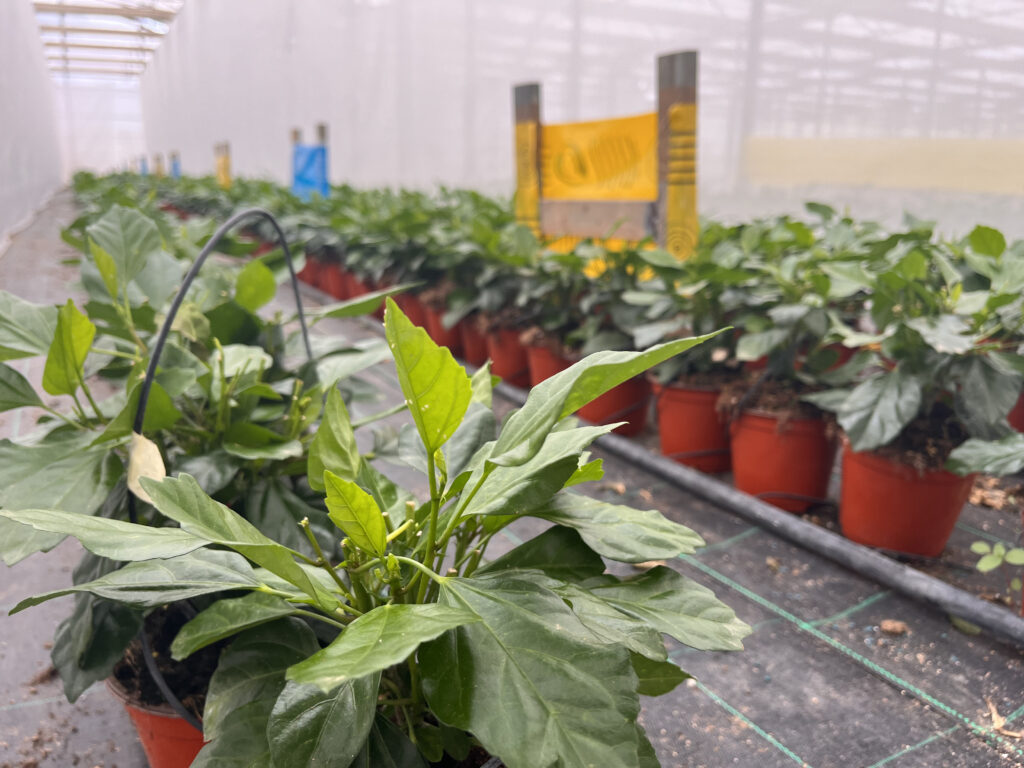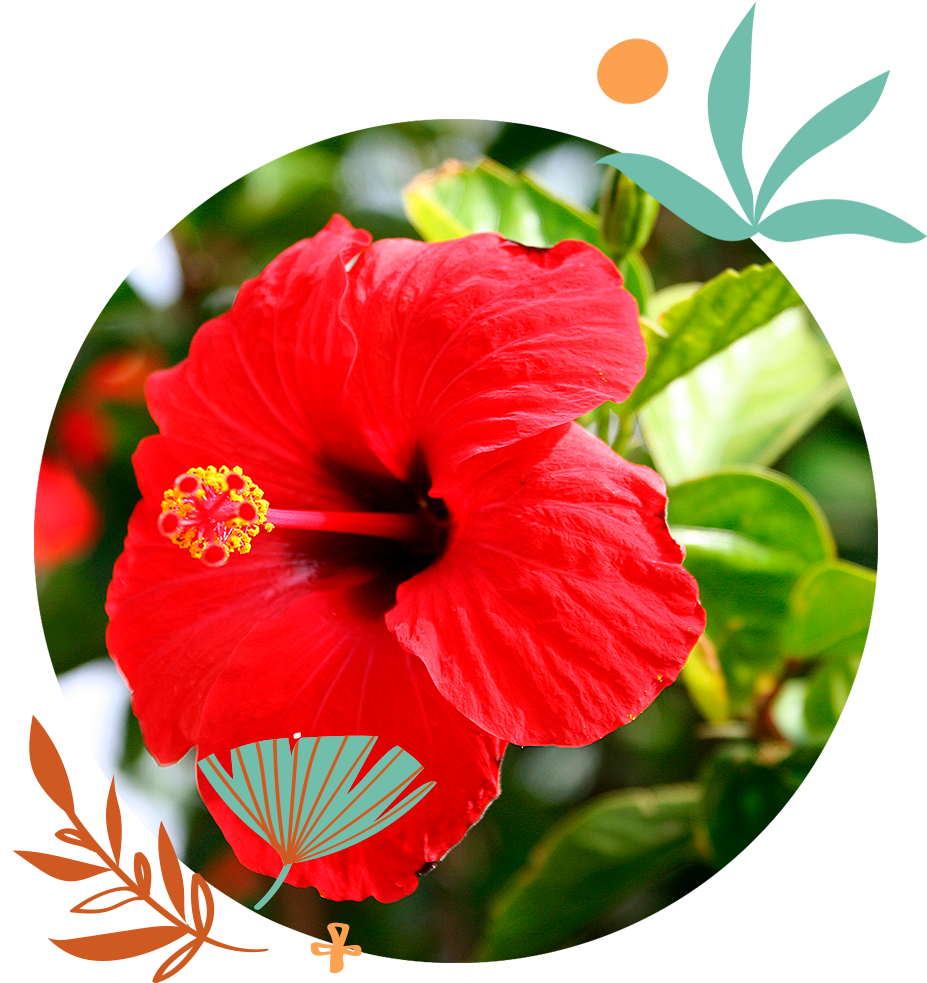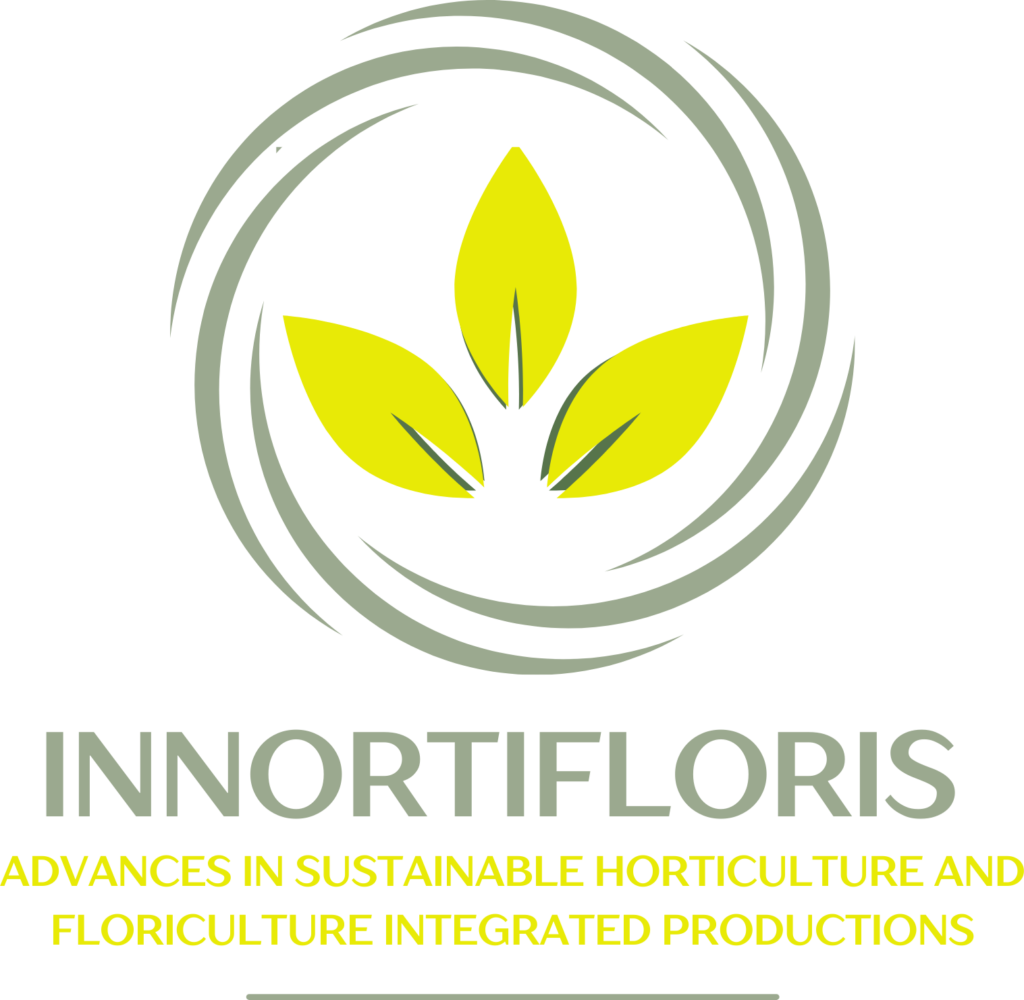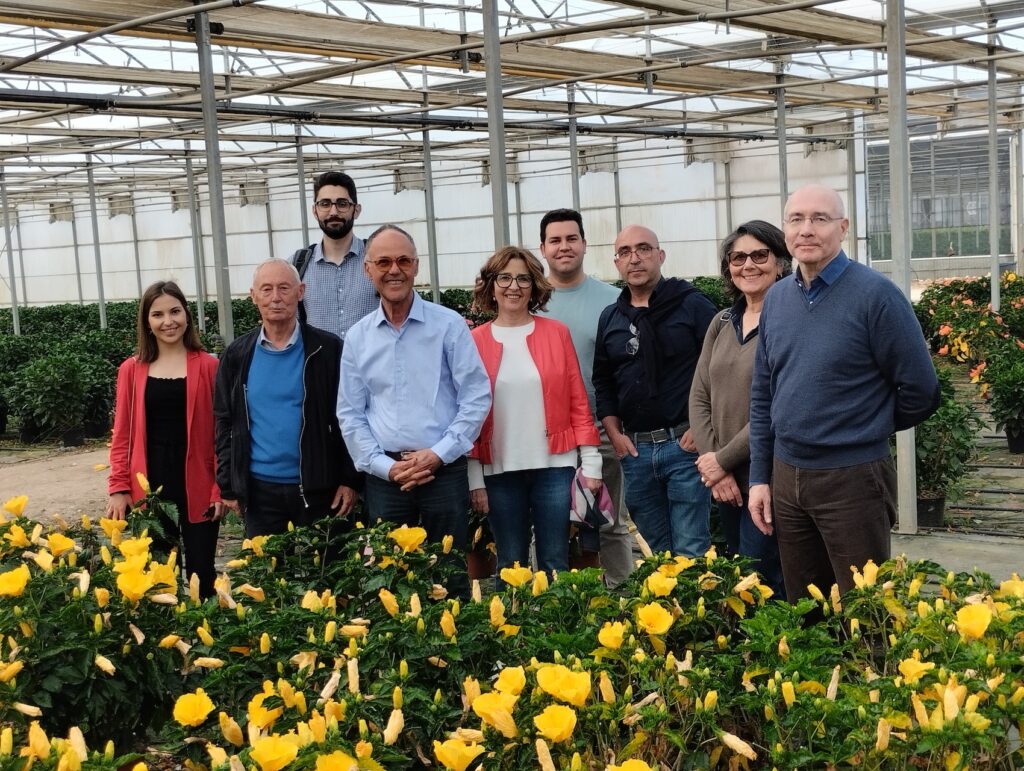

The INNORTIFLORIS project, through a multidisciplinary approach, aims to transfer and validate a series of innovative tools for the integrated protection of cultivated plants, both ornamental and horticultural, in order to obtain products with reduced toxicological risk and high organoleptic and health characteristics. The subject of these innovations includes potted hibiscus and dipladenia plants, as well as strawberry crops for the production of fruit destined for jam making. This will be pursued through various intervention lines, including: the rationalization of the use of natural antagonists and monitoring systems, as well as the application of biotechnical methods on hibiscus, dipladenia, and strawberries; the optimization of nitrogen nutrient inputs on hibiscus with implications for entomatic infestations and the use of mycorrhizal-fungal symbiosis on hibiscus. Additionally, the effects of molybdenum on the development of mite and phytophagous insect infestations and on the organoleptic characteristics of strawberry fruits used for jam production will be evaluated, as well as the use of crop residues for compost production to be used in the cultivation of the horticultural and floricultural species involved in the project.
The main goal of the project activities is the experimentation and validation of solutions aimed at reducing potential negative impacts on the environment. This is achieved through the sustainable use of resources (water, energy, land, photosynthetic activity), the reduction and reuse of waste, and the conscious choice of crop protection techniques with lower environmental impact.
The project also aims to transfer knowledge and innovations to farmers for their appropriate application in the field, actively involving them to demonstrate the positive effects that can be brought to the production process.
By adopting integrated production systems, the involved companies and, indirectly, the Sicilian horticultural and floricultural sector can create a sustainable management system for floriculture and strawberry cultivation. This includes particular attention to environmental aspects, improving the sector's efficiency without neglecting profitability.
The project anticipates the application of production and pest defense methods aimed at minimizing the use of synthetic chemicals, rationalizing fertilization in line with ecological, economic, and toxicological principles, and reusing renewable resources such as crop residues for compost production.
Through an integrated production system, the goal is to rationalize all production phases, both in terms of process and product. All of this is achieved through the experimentation, validation, and dissemination of eco-sustainable production techniques to maximize productivity and reduce risks for industry operators and consumers.
Improvement of environmental and ecological sustainability through the reduction of the impact of various production activities, both at the company and territorial levels. Assistance to SMEs in the application of the best available techniques, technologies, and innovative practices to ensure compliance with environmental legislation.
This action sets up a tailor-made management system to meet the specific project needs, adjusted according to the structure and number of partners. Established procedures and techniques refined over several years in managing other funded projects will be implemented by the entire partnership to ensure efficiency and effectiveness in achieving the project's objectives.
Experienced teaching staff will undergo a training program, introduction, and adaptation of project innovation structured in theoretical modules and demonstration days. A portion of the training aims to familiarize participants with partner resources for enhancing the intangible attributes of products in the market, principles of traceability systems "from field to table," and certified quality systems.
The effectiveness and sustainability of the integrated use of entomophagous insects and bioinsecticides in protecting hibiscus and dipladenia from phytophagous insects will be evaluated at the company level. Protocols for defense based on the integrated use of "biopesticides" of plant origin (azadirachtin) and microbiological (Beauveria bassiana) and programmed releases of predatory entomophages (phytoseid mites, anthocorids, ladybugs, chrysopids) and parasitoids (braconid and aphelinid wasps) are expected to be developed and evaluated.
This aims to validate monitoring and mass capture systems for phytophagous insects with innovative chromotropic traps enhanced with pheromones for the control of Bemisia tabaci andFrankliniella occidentalis on Hibiscus and dipladenia.
Mealybugs pose a problem for many cultivated and wild plants due to their trophic activity. The tests aim to evaluate the effectiveness of integrated control strategies for Pseudococcus longispinus using a combination of parasitoid and predator entomophagous releases, paraffin mineral oils, supported by traps with sexual pheromones.
The objective of this action is to validate fertigation protocols capable of reducing infestations affecting potted Hibiscus rosa-sinensis. The action involves evaluating two fertigation plans to provide the necessary nutrient elements for the balanced and punctual development and flowering of the plants.
This action aims to assess the effect of symbiotic fungi (mycorrhizae) of the species Glomus intraradices and saprophytic fungi (with fungicidal action) of the species Trichoderma harzianum applied through fertigation on potted Hibiscus rosa-sinensis cultivation. Optimal greenhouse environment temperatures will also be validated to maximize the activity of biostimulating microorganisms.
The effect of molybdenum on the development of phytophagous insects, nutritional parameters, qualitative and aromatic attributes of strawberry fruits, as well as their derivatives (jams), will be evaluated using an experimental scheme that involves the combined use of foliar fertilization and fertigation with increasing doses of Mo on both soilless and soil-based strawberry plants.
This action aims to validate the use of crop residues resulting from the cultivation of hibiscus, dipladenia, and cycas plants for the production of organic compost to be used as a cultivation substrate either alone or in combination with those normally used in the companies involved in the project.
The project will be made easily recognizable through its own coordinated image. Objectives and actions will be disseminated through a communication plan involving various channels and tools capable of creating an effective flow of information on innovative project topics. Finally, events and initiatives will be organized to maximize the dissemination of project results.



The project aims to validate innovative tools for the integrated protection of ornamental and horticultural plants to obtain products with reduced toxicological risk and high organoleptic and health characteristics.


Province of Trapani
EMAIL: info@innortifloris.it

Project funded by the Sicilian Region under the European Agricultural Fund for Rural Development.
RDP 2014-2022, Sub measure 16.1 “Support for the establishment and management of operational groups of the EIP on agricultural productivity and sustainability.”
Name of the Operational Group: INNORTIFLORIS – Project: Innovations in sustainable integrated horticultural and floricultural production – D.D.S. n. 2969 dated 18/07/2022 – CUP: G87H22001890009